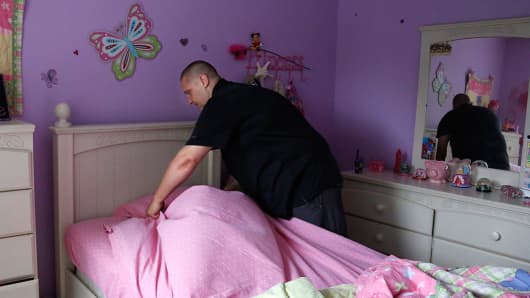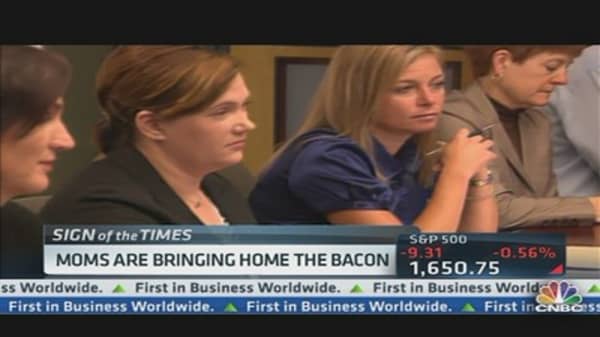If there's one word we might use to describe modern fatherhood, it would be busy.
In an average week, dads are spending nearly triple as much time on direct child care and more than double the time on housework as their fathers or grandfathers did in the 1960s, according to a Pew Research Center analysis of the Census Bureau data on how Americans spend their time.
They're no slouches at the home, office, farm or factory, either. If they have a job, chances are they are putting in more than 40 hours at work, too.
"Fathers are much more involved today in their children's lives than they were five decades ago," said Wendy Wang, a research associate at Pew Research Center who co-authored the comprehensive report on parenting.
The shift has come as more moms have started working, though that's not necessarily what has moved dads to be take on more child-rearing duties.
(Read More: No Paid Time Off? Welcome to 'No-Vacation Nation')
Instead, Fred Van Deusen, senior research associate at the Boston College Center for Work and Family, said his research has shown that many dads want very much to be involved in their kids' lives. In fact, they'd like to spend even more time with their children, but they also feel the demand to succeed at work.
"There's still a lot of societal pressure on dads to be breadwinners," Van Deusen said.
The Pew analysis found that in 2011, men with children under 18 in the home spent an average 7.3 hours a week on direct child care, which would include things such as changing diapers and helping with homework. That compares with an average of 2.5 hours in 1965.
Meanwhile, they spent an average of 9.8 hours a week on housework in 2011, up from about four hours a week in 1965.
Dads also worked an average of 37.1 hours a week in 2011, compared with about 42 hours in 1965. Wang said the hourly decrease is mainly due to a decline in the number of dads working—because of the weak job market and other factors—compared with 1965. The total average includes dads who aren't working at all.
Looking more narrowly, only at dads who are employed, they worked 41.4 hours a week on average in 2011, down from 43 hours in 2007.
(Read More: The Inflation of Life—Cost of Raising a Child Soars)
In total, fathers spend about five hours more per week on child care, housework and paid work than they did in the 1960s.
Nevertheless, women still do much more child care and housework, while dads do more paid work.







